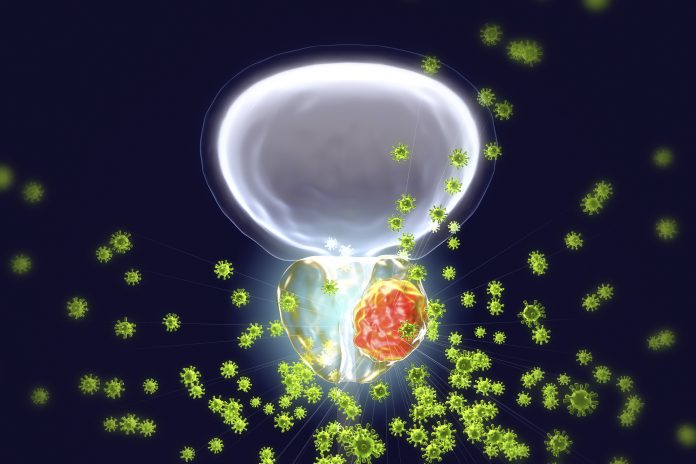
City of Hope researchers have identified four metabolism-related biomarkers that may be associated with an increased risk for metastatic prostate cancer in men of West African heritage and could one day be incorporated into a disease prediction tool for this high-risk population.
“We hope that our findings can become part of a comprehensive clinical panel that can be used to predict the risk of deadly prostate cancer,” said Sarah Shuck PhD, assistant professor in the Arthur Riggs Diabetes & Metabolism Institute and Department of Diabetes & Cancer Metabolism at City of Hope, a cancer research and treatment organization.
Shuck is principal investigator of the trial and presented the data at the American Chemical Society Fall 2023 meeting in San Francisco. She told Inside Precision Medicine she anticipates “that these tools can be used to determine which men with diabetes are at the highest risk of metastatic prostate cancer.”
Shuck’s lab studies the metabolism changes that occur in diabetes and how they can overlap with cancer. Men with diabetes are at a significantly higher risk for developing metastatic prostate cancer, and this is exacerbated in Black men who are already disproportionally impacted by prostate cancer. They have a 60% higher incidence of disease and a twofold increase in mortality risk compared with European–American men.
Shuck and team were therefore interested to find out if markers that measure how well a person is managing their diabetes might be associated with metastatic prostate cancer.
Their research focussed on methylglyoxal, a compound that is elevated in people with diabetes, and has previously been associated with tumor growth. Methylglyoxal is a by-product of lipid, protein, and sugar metabolism that joins on to DNA, RNA, and protein to form complexes called adducts.
These adducts, termed MG-advanced glycation end products (MG-AGEs) lead to DNA mutations and genomic instability, change RNA stability and translation, and alter protein stability and function.
Shuck and team used mass spectrometry to measure serum MG-AGEs in 371 men with and without prostate cancer. To determine race, they assessed samples for genetic evidence of West African heritage.
They also looked at levels of the soluble receptor for AGEs (sRAGE), which sequesters MG-AGEs and prevents RAGE activation, and glyoxalase 1 (GLO1), which detoxifies methylglyoxal.
They found MG-AGEs and sRAGE, as well as mutations in the genes encoding GLO1 and RAGE, were significantly associated with prostate cancer in African–American/Black men but not European–American men.
However, contrary to expectations, the men of West African descent had lower levels of these malignancy-promoting complexes in their blood. Furthermore, the lower the level of these complexes in the samples, the greater the risk for metastatic disease.
“We think that the levels of methylglyoxal complexes are lower in circulation because they are accumulating in the tumor and driving tumor growth,” suggested Shuck.
She added: “We have seen similar results in triple-negative breast cancer, a deadly form of breast cancer that disproportionately affects Black women. An intriguing finding in our analysis of breast cancer is that we see higher accumulation of adducts in tumor tissue, which was a missing component of our current study and the focus of our future work.”
Shuck concluded: “The goal is to give physicians the ability to determine which men will respond best to specialized treatments and potentially identify new therapeutic targets.”













